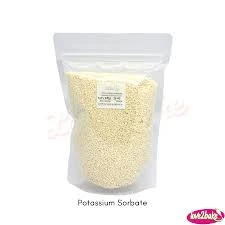
natural preservatives for baked goods
Natural Preservatives for Baked Goods A Safe and Healthy Choice
Baking is an age-old culinary practice that has delighted taste buds across the globe. However, the shelf life of baked goods is a common concern for both home bakers and the food industry. Traditional preservatives, while effective, often raise health concerns, prompting a search for natural alternatives. This article explores various natural preservatives that can help extend the shelf life of baked goods while maintaining their quality and safety.
The Importance of Preservatives
Preservatives play a crucial role in preventing spoilage caused by microbial growth, oxidation, and moisture loss. In baked goods, the most common issues include mold growth and staleness. While synthetic preservatives such as potassium sorbate and calcium propionate are widely used, they can cause allergic reactions in some individuals and may raise health concerns. Therefore, many consumers are becoming more conscious of the ingredients in their food, leading to a growing demand for natural preservatives.
Natural Preservatives Options and Benefits
1. Vinegar One of the oldest natural preservatives, vinegar’s acidity helps inhibit mold and bacteria growth. It can be easily incorporated into bread recipes without altering the flavor significantly. For example, adding a tablespoon of apple cider vinegar to dough can enhance both the shelf life and texture of the final product.
2. Honey Known for its natural antibacterial properties, honey is a great alternative to refined sugars. It not only sweetens baked goods but also helps retain moisture, preventing staleness. Using honey in recipes like muffins or cakes can lead to a longer shelf life and a more moist texture.
3. Citrus Juice and Zest The high acidity of citrus fruits, particularly lemon and lime, makes them effective natural preservatives. In addition to enhancing flavor, the antioxidants found in citrus help combat oxidation. Incorporating citrus juice or zest into baked goods can provide a fresh flavor and improve longevity.
natural preservatives for baked goods

4. Salt A traditional preservative, salt can inhibit the growth of bacteria and molds. While it’s already a common ingredient in baking, increasing its amount slightly can help prolong the shelf life of breads and pastries. However, care must be taken to balance flavor and health.
5. Spices Many spices, such as cinnamon, cloves, and ginger, have natural antimicrobial properties. Beyond adding flavor, they can help inhibit microbial growth in baked goods. For example, cinnamon is not only flavorful but has been shown to help prevent mold in baked goods.
6. Natural Oils Oils like olive oil or coconut oil can help seal moisture within baked goods, preventing them from drying out. They can also introduce antioxidants that contribute to shelf stability.
7. Gelatin and Pectin These natural substances can act as moisture-retention agents, helping to keep baked goods fresh. They are particularly effective in products like cakes and muffins, offering a pleasant texture while also extending shelf life.
8. Plant Extracts Extracts such as rosemary and green tea are packed with antioxidants and have been shown to possess antimicrobial properties. Adding a small amount to dough can improve preservation without altering flavor significantly.
Conclusion
Using natural preservatives in baked goods not only addresses the consumer demand for healthier options but also aligns with a growing trend towards clean eating. By incorporating ingredients such as vinegar, honey, citrus, and spices, bakers can create delicious products that are safe, appealing, and have a longer shelf life. As science continues to validate the effectiveness of these natural alternatives, the future of baking looks not only tasty but also health-conscious.
-
Pure Sodium Dichloroisocyanurate Dihydrate | Powerful DisinfectantNewsAug.29,2025
-
Industrial Chemicals: Quality & Purity for Every IndustryNewsAug.28,2025
-
Nitrile Rubber Honoring Strict Production StandardsNewsAug.22,2025
-
Aspartame Ingredients Honoring Food Safety ValuesNewsAug.22,2025
-
Fertilizer for Balanced Plant NutritionNewsAug.22,2025
-
Cyanide Gold Processing with High Purity AdditivesNewsAug.22,2025
-
Formic Acid in Textile Dyeing ApplicationsNewsAug.22,2025
Hebei Tenger Chemical Technology Co., Ltd. focuses on the chemical industry and is committed to the export service of chemical raw materials.
-

view more DiethanolisopropanolamineIn the ever-growing field of chemical solutions, diethanolisopropanolamine (DEIPA) stands out as a versatile and important compound. Due to its unique chemical structure and properties, DEIPA is of interest to various industries including construction, personal care, and agriculture. -

view more TriisopropanolamineTriisopropanolamine (TIPA) alkanol amine substance, is a kind of alcohol amine compound with amino and alcohol hydroxyl, and because of its molecules contains both amino and hydroxyl. -

view more Tetramethyl Thiuram DisulfideTetramethyl thiuram disulfide, also known as TMTD, is a white to light-yellow powder with a distinct sulfur-like odor. It is soluble in organic solvents such as benzene, acetone, and ethyl acetate, making it highly versatile for use in different formulations. TMTD is known for its excellent vulcanization acceleration properties, which makes it a key ingredient in the production of rubber products. Additionally, it acts as an effective fungicide and bactericide, making it valuable in agricultural applications. Its high purity and stability ensure consistent performance, making it a preferred choice for manufacturers across various industries.





